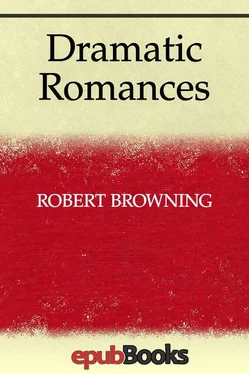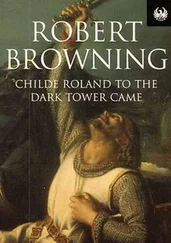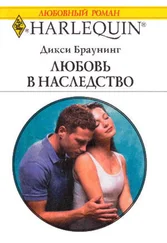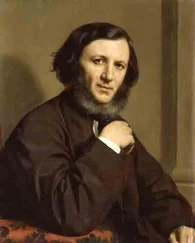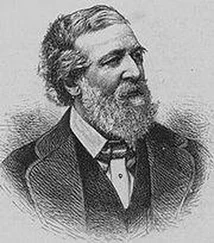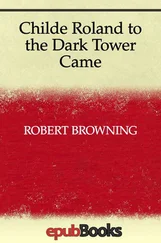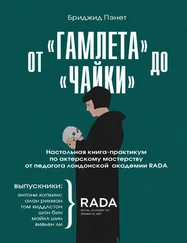Роберт Браунинг - Dramatic Romances
Здесь есть возможность читать онлайн «Роберт Браунинг - Dramatic Romances» весь текст электронной книги совершенно бесплатно (целиком полную версию без сокращений). В некоторых случаях можно слушать аудио, скачать через торрент в формате fb2 и присутствует краткое содержание. Год выпуска: 2014, Издательство: epubBooks Classics, Жанр: Поэзия, на английском языке. Описание произведения, (предисловие) а так же отзывы посетителей доступны на портале библиотеки ЛибКат.
- Название:Dramatic Romances
- Автор:
- Издательство:epubBooks Classics
- Жанр:
- Год:2014
- ISBN:нет данных
- Рейтинг книги:3 / 5. Голосов: 1
-
Избранное:Добавить в избранное
- Отзывы:
-
Ваша оценка:
- 60
- 1
- 2
- 3
- 4
- 5
Dramatic Romances: краткое содержание, описание и аннотация
Предлагаем к чтению аннотацию, описание, краткое содержание или предисловие (зависит от того, что написал сам автор книги «Dramatic Romances»). Если вы не нашли необходимую информацию о книге — напишите в комментариях, мы постараемся отыскать её.
Dramatic Romances — читать онлайн бесплатно полную книгу (весь текст) целиком
Ниже представлен текст книги, разбитый по страницам. Система сохранения места последней прочитанной страницы, позволяет с удобством читать онлайн бесплатно книгу «Dramatic Romances», без необходимости каждый раз заново искать на чём Вы остановились. Поставьте закладку, и сможете в любой момент перейти на страницу, на которой закончили чтение.
Интервал:
Закладка:
NOTES:
"The Italian in England." An Italian patriot who has taken part in an unsuccessful revolt against Austrian dominance, reflects upon the incidents of his escape and flight from Italy to the end that if he ever should have a thought beyond the welfare of Italy, he would wish first for the discomfiture of his enemies and then to go and see once more the noble woman who at the risk of her own life helped him to escape. Though there is no exact historical incident upon which this poem is founded, it has a historical background. The Charles referred to (lines 8, 11, 20, 116, 125) is Charles Albert, Prince of Carignano, of the younger branch of the house of Savoy. His having played with the patriot in his youth, as the poem says, is quite possible, for Charles was brought up as a simple citizen in a public school, and one of his chief friends was Alberta Nota, a writer of liberal principles, whom he made his secretary. As indicated in the poem, Charles at first declared himself in sympathy, though in a somewhat lukewarm manner, with the rising led by Santa Rosa against Austrian domination in 1823, and upon the abdication of Victor Emanuel he became regent of Turin. But when the king Charles Felix issued a denunciation against the new government, Charles Albert succumbed to the king's threats and left his friends in the lurch. Later the Austrians marched into the country, Santa Rosa was forced to retreat from Turin, and, with his friends, he who might well have been the very patriot of the poem was obliged to fly from Italy.
19. Metternich: the distinguished Austrian diplomatist and determined enemy of Italian independence.
76. Tenebrae: darkness. "The office of matins and lauds, for the three last days in Holy Week. Fifteen lighted candles are placed on a triangular stand, and at the conclusion of each psalm one is put out till a single candle is left at the top of the triangle. The extinction of the other candles is said to figure the growing darkness of the world at the time of the Crucifixion. The last candle (which is not extinguished, but hidden behind the altar for a few moments) represents Christ, over whom Death could not prevail.'' (Dr. Berdoe)
In a Gondola
He sings.
I send my heart up to thee, all my heart
In this my singing.
For the stars help me, and the sea bears part;
The very night is clinging
Closer to Venice' streets to leave one space
Above me, whence thy face
May light my joyous heart to thee its dwelling–place.
She speaks.
Say after me, and try to say
My very words, as if each word
Came from you of your own accord, 10
In your own voice, in your own way:
"This woman's heart and soul and brain
Are mine as much as this gold chain
She bids me wear, which (say again)
I choose to make by cherishing
A precious thing, or choose to fling
Over the boat–side, ring by ring."
And yet once more say…no word more!
Since words are only words. Give o'er!
Unless you call me, all the same, 20
Familiarly by my pet name,
Which if the Three should hear you call,
And me reply to, would proclaim
At once our secret to them all.
Ask of me, too, command me, blame—
Do, break down the partition–wall
'Twixt us, the daylight world beholds
Curtained in dusk and splendid folds!
What's left but—all of me to take?
I am the Three's: prevent them, slake 30
Your thirst! 'Tis said, the Arab sage,
In practising with gems, can loose
Their subtle spirit in his cruce
And leave but ashes: so, sweet mage,
Leave them my ashes when thy use
Sucks out my soul, thy heritage!
He sings.
I
Past we glide, and past, and past!
What's that poor Agnese doing
Where they make the shutters fast?
Grey Zanobi's just a–wooing 40
To his couch the purchased bride:
Past we glide!
II
Past we glide, and past, and past!
Why's the Pucci Palace flaring
Like a beacon to the blast?
Guests by hundreds, not one caring
If the dear host's neck were wried:
Past we glide!
She sings.
I
The moth's kiss, first!
Kiss me as if you made believe 50
You were not sure, this eve,
How my face, your flower, had pursed
Its petals up; so, here and there
You brush it, till I grow aware
Who wants me, and wide ope I burst..
II
The bee's kiss, now!
Kiss me as if you entered gay
My heart at some noonday,
A bud that dares not disallow
The claim, so all is rendered up, 60
And passively its shattered cup
Over your head to sleep I bow.
He sings.
I
What are we two?
I am a Jew,
And carry thee, farther than friends can pursue,
To a feast of our tribe;
Where they need thee to bribe
The devil that blasts them unless he imbibe.
Thy…Scatter the vision for ever! And now
As of old, I am I, thou art thou! 70
II
Say again, what we are?
The sprite of a star,
I lure thee above where the destinies bar
My plumes their full play
Till a ruddier ray
Than my pale one announce there is withering away
Some…Scatter the vision forever! And now,
As of old, I am I, thou art thou!
He muses.
Oh, which were best, to roam or rest?
The land's lap or the water's breast? 80
To sleep on yellow millet–sheaves,
Or swim in lucid shallows just
Eluding water–lily leaves,
An inch from Death's black fingers, thrust
To lock you, whom release he must;
Which life were best on Summer eves?
He speaks, musing.
Lie back; could thought of mine improve you?
From this shoulder let there spring
A wing; from this, another wing;
Wings, not legs and feet, shall move you! 90
Snow–white must they spring, to blend
With your flesh, but I intend
They shall deepen to the end,
Broader, into burning gold,
Till both wings crescent–wise enfold
Your perfect self, from 'neath your feet
To o'er your head, where, lo, they meet
As if a million sword–blades hurled
Defiance from you to the world!
Rescue me thou, the only real! 100
And scare away this mad ideal
That came, nor motions to depart!
Thanks! Now, stay ever as thou art!
Still he muses.
I
What if the Three should catch at last
Thy serenader? While there's cast
Paul's cloak about my head, and fast
Gian pinions me, Himself has past
His stylet thro' my back; I reel;
And…is it thou I feel?
II
They trail me, these three godless knaves, 110
Past every church that saints and saves,
Nor stop till, where the cold sea raves
By Lido's wet accursed graves,
They scoop mine, roll me to its brink,
And…on thy breast I sink!
She replies, musing.
Dip your arm o'er the boat–side, elbow–deep,
As I do: thus: were death so unlike sleep,
Caught this way? Death's to fear from flame or steel,
Or poison doubtless; but from water—feel!
Go find the bottom! Would you stay me? There! 120
Now pluck a great blade of that ribbon–grass
To plait in where the foolish jewel was,
I flung away: since you have praised my hair,
'Tis proper to be choice in what I wear.
He speaks.
Row home? must we row home? Too surely
Know I where its front's demurely
Over the Giudecca piled;
Window just with window mating,
Door on door exactly waiting,
All's the set face of a child: 130
But behind it, where's a trace
Of the staidness and reserve,
And formal lines without a curve,
In the same child's playing–face?
No two windows look one way
O'er the small sea–water thread
Below them. Ah, the autumn day
I, passing, saw you overhead!
First, out a cloud of curtain blew,
Then a sweet cry, and last came you— 140
To catch your lory that must needs
Escape just then, of all times then,
To peck a tall plant's fleecy seeds,
And make me happiest of men.
I scarce could breathe to see you reach
So far back o'er the balcony
To catch him ere he climbed too high
Above you in the Smyrna peach
That quick the round smooth cord of gold,
This coiled hair on your head, unrolled, 150
Fell down you like a gorgeous snake
The Roman girls were wont, of old,
When Rome there was, for coolness' sake
To let lie curling o'er their bosoms.
Dear lory, may his beak retain
Ever its delicate rose stain
As if the wounded lotus–blossoms
Had marked their thief to know again!
Stay longer yet, for others' sake
Than mine! What should your chamber do? 160
—With all its rarities that ache
In silence while day lasts, but wake
At night–time and their life renew,
Suspended just to pleasure you
Who brought against their will together
These objects, and, while day lasts, weave
Around them such a magic tether
That dumb they look: your harp, believe,
With all the sensitive tight strings
Which dare not speak, now to itself 170
Breathes slumberously, as if some elf
Went in and out the chords, his wings
Make murmur wheresoe'er they graze,
As an angel may, between the maze
Of midnight palace–pillars, on
And on, to sow God's plagues, have gone
Through guilty glorious Babylon.
And while such murmurs flow, the nymph
Bends o'er the harp–top from her shell
As the dry limpet for the nymph 180
Come with a tune he knows so well.
And how your statues' hearts must swell!
And how your pictures must descend
To see each other, friend with friend!
Oh, could you take them by surprise,
You'd find Schidone's eager Duke
Doing the quaintest courtesies
To that prim saint by Haste–thee–Luke!
And, deeper into her rock den,
Bold Castelfranco's Magdalen 190
You'd find retreated from the ken
Of that robed counsel–keeping Ser—
As if the Tizian thinks of her,
And is not, rather, gravely bent
On seeing for himself what toys
Are these, his progeny invent,
What litter now the board employs
Whereon he signed a document
That got him murdered! Each enjoys
Its night so well, you cannot break 200
The sport up, so, indeed must make
More stay with me, for others' sake.
Интервал:
Закладка:
Похожие книги на «Dramatic Romances»
Представляем Вашему вниманию похожие книги на «Dramatic Romances» списком для выбора. Мы отобрали схожую по названию и смыслу литературу в надежде предоставить читателям больше вариантов отыскать новые, интересные, ещё непрочитанные произведения.
Обсуждение, отзывы о книге «Dramatic Romances» и просто собственные мнения читателей. Оставьте ваши комментарии, напишите, что Вы думаете о произведении, его смысле или главных героях. Укажите что конкретно понравилось, а что нет, и почему Вы так считаете.
